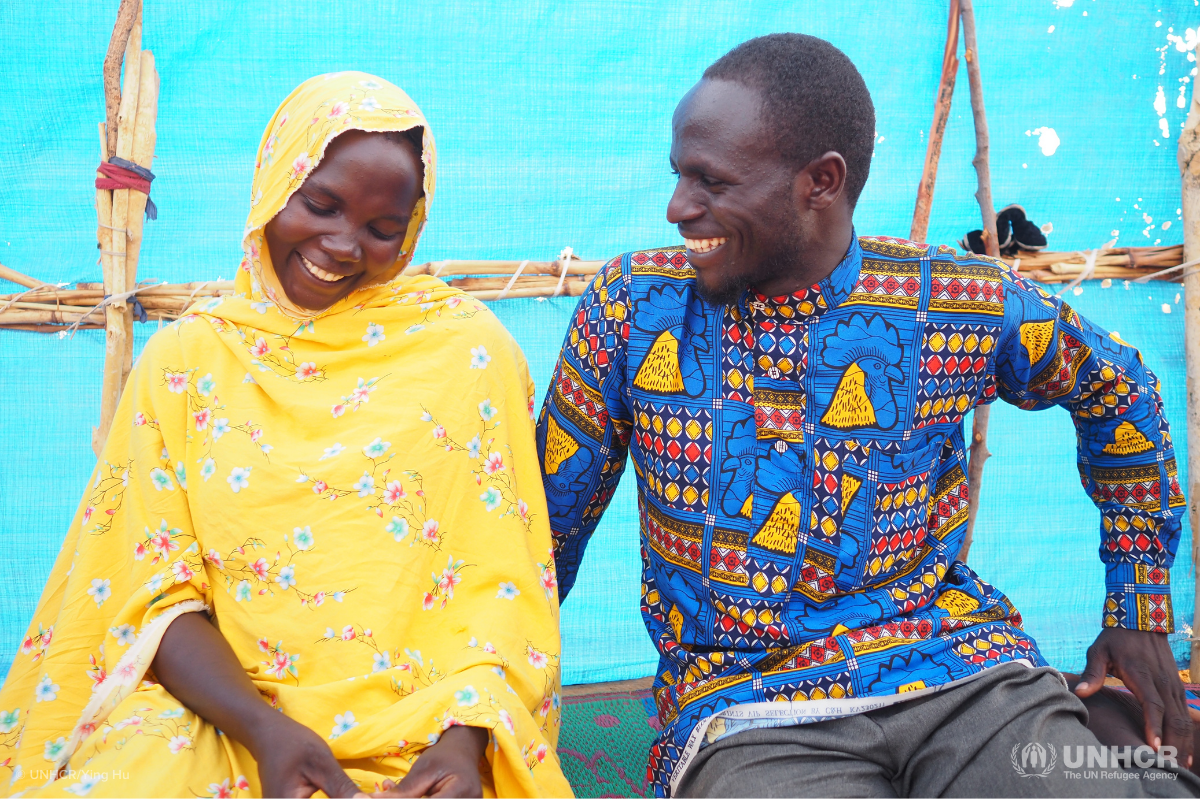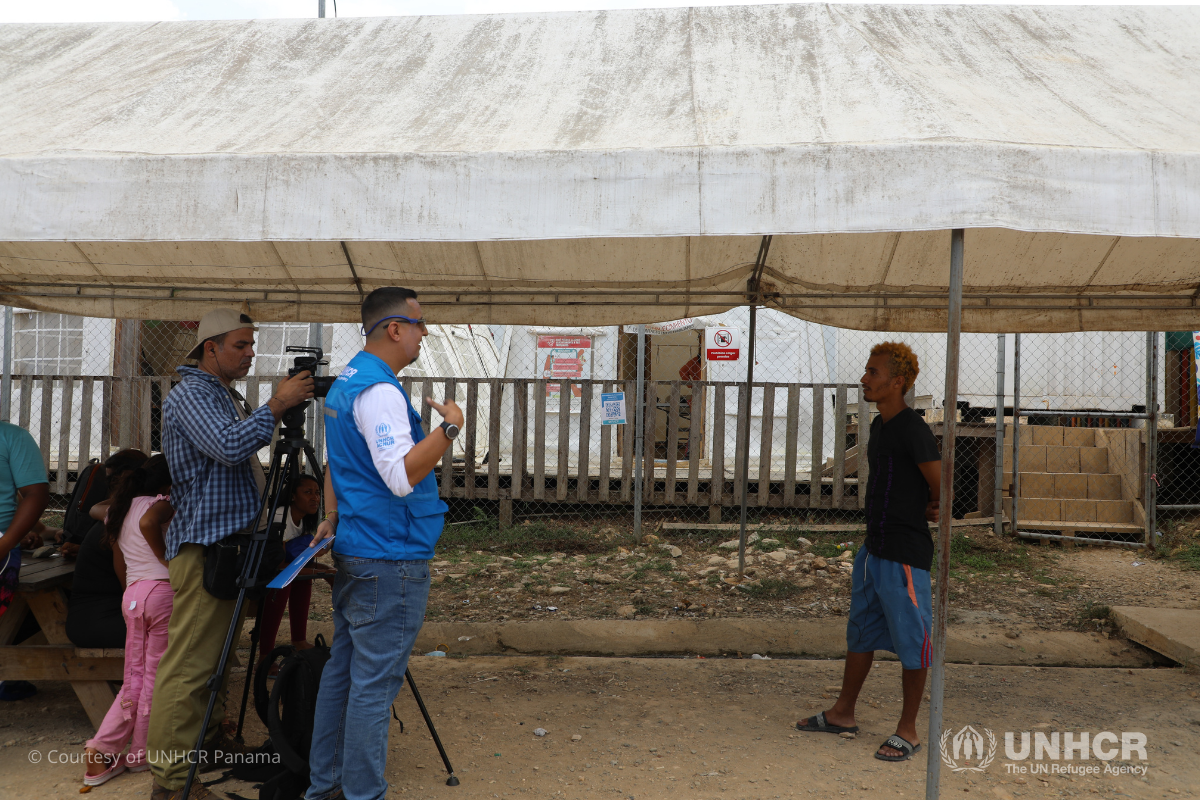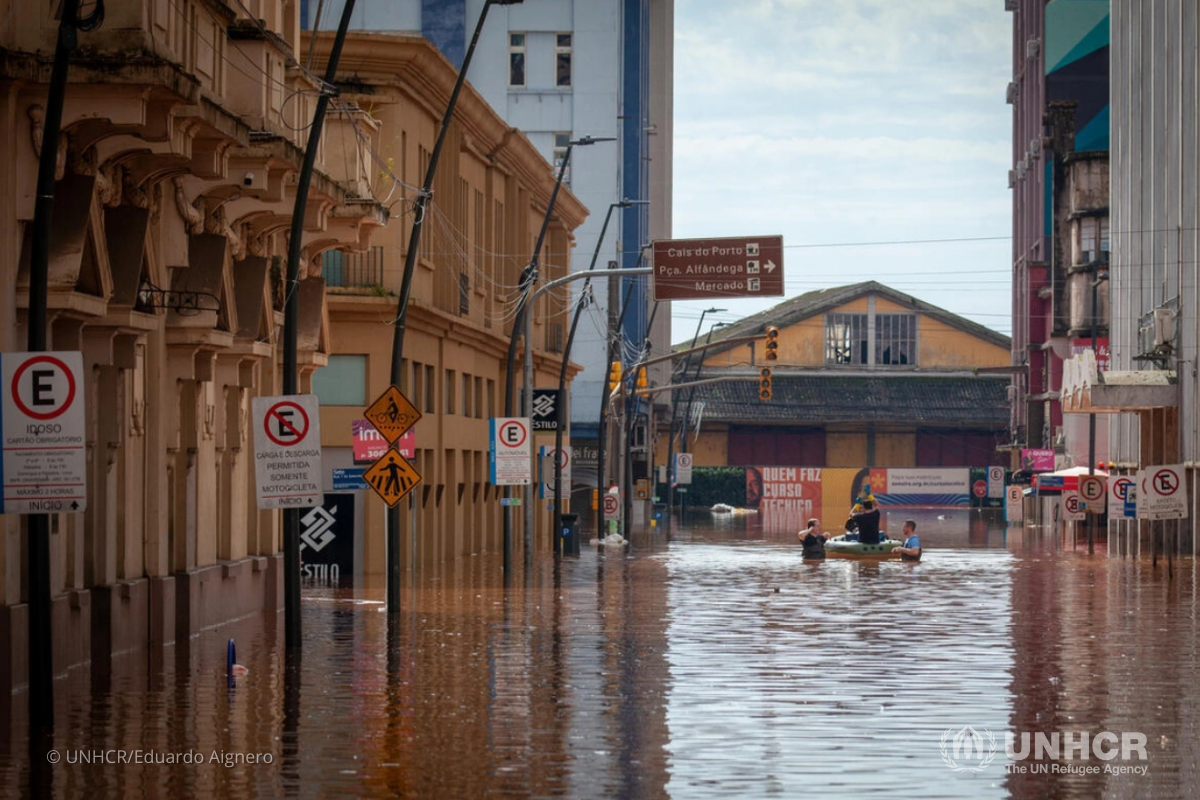Venezuela Crisis Explained
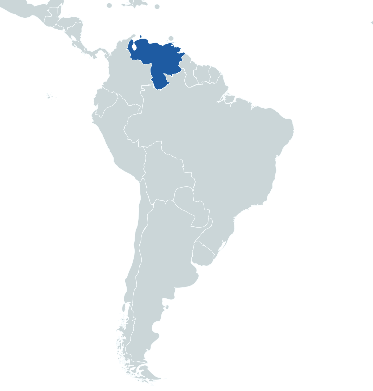
Venezuela is a country that has traditionally been a generous host to refugees, but it is now facing one of the largest displacement crises in the world. Rampant violence, inflation, gang warfare, soaring crime rates, and shortages of food, medicine and essential services are forcing millions to flee. Nearly 8 million Venezuelans are displaced globally, with the majority — more than 6.5 million — currently residing in Latin America and the Caribbean. This is the largest forced displacement crisis ever in Latin America.
Here's What You Need to Know:
1. Why are Venezuelans fleeing?
2. Where are Venezuelans fleeing to?
3. What is the UN Refugee Agency doing?
4. How are children being impacted by this crisis?
5. What still needs to be done?
Why are Venezuelans fleeing?
People are fleeing Venezuela in an attempt to escape widespread violence and poverty. Safety concerns, hunger and high inflation after an economic collapse have left millions extremely vulnerable. Since the crisis began, nearly 8 million Venezuelans have been forced to flee from their homes in search of safety.
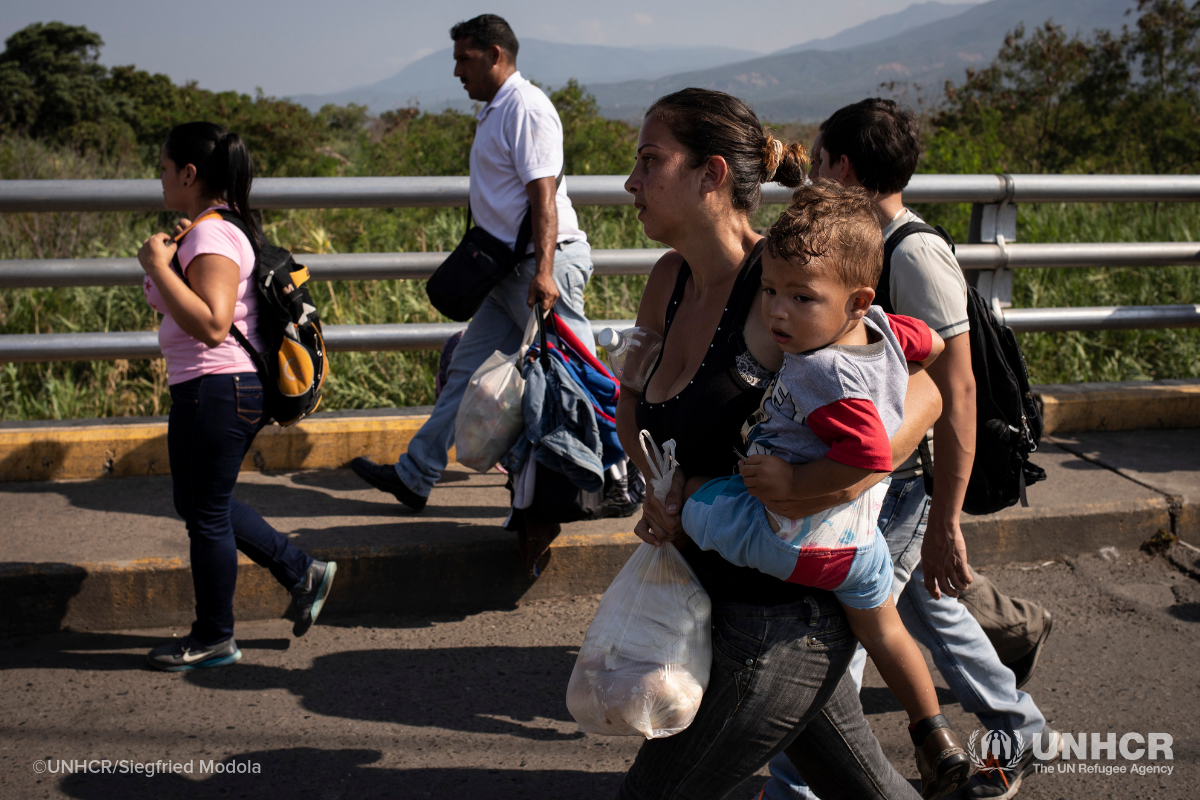
Where are Venezuelans fleeing to?
The majority of Venezuelans, more than 6.5 million, are fleeing to countries across Latin America and the Caribbean. Most Venezuelans are finding refuge nearby in Colombia, Peru and Brazil - with Colombia hosting the largest number of Venezuelan refugees and migrants. Nearly 3 million Venezuelans have fled to Colombia where they have more opportunities to regularize their stay and contribute to the economy.
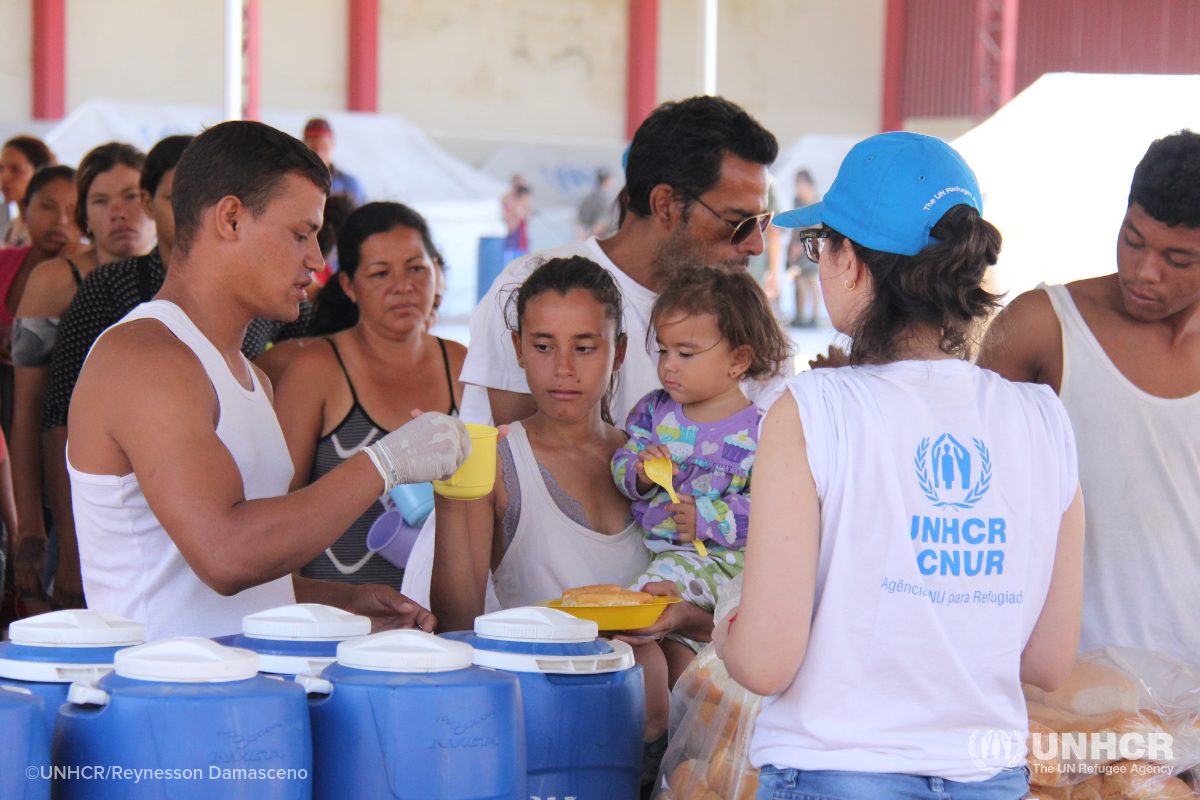
What is UNHCR, the UN Refugee Agency, doing?
In close collaboration with host governments, partner organizations, civil society, faith-based organizations and UN Agencies (particularly IOM, the International Organization for migration), UNHCR is undertaking several activities to protect Venezuelan refugees and migrants while responding to their humanitarian needs and promoting socioeconomic inclusion.
To ensure safe and dignified reception conditions, UNHCR has stepped up its presence in border areas across the region, providing lifesaving assistance and responding to the basic needs of refugees and migrants. UNHCR is also providing legal aid and counseling and upholding refugee law and practice.
To promote the integration of refugees and migrants in their host communities, UNHCR works closely with local authorities, civil society and the private sector and supports providing vocational training to Venezuelans. UNHCR is also supporting the relocation of Venezuelan refugees and migrants to places with more employment opportunities and services.
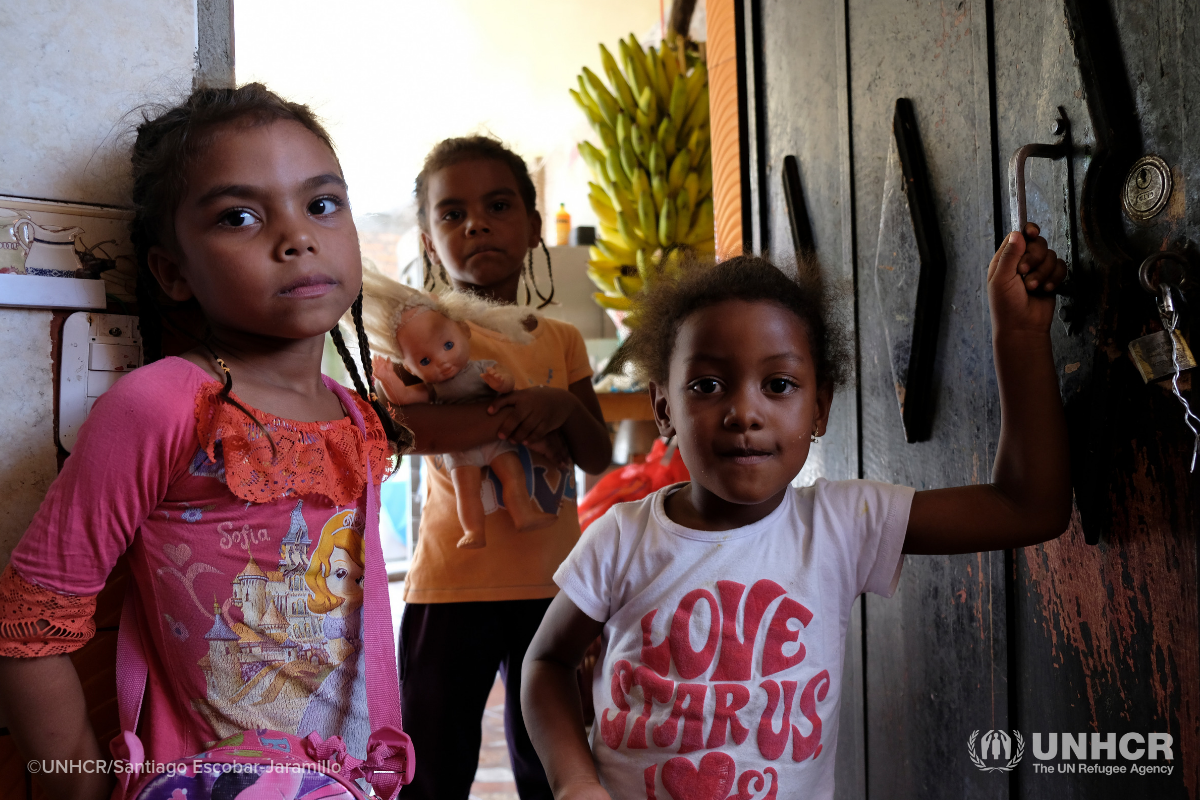
How are children being impacted by this crisis?
The crisis in Venezuela threatens to leave an entire generation of children displaced and suffering from trauma. Increasingly, children are fleeing alone and there are more reported instances of children being separated from their parents. In addition to facing dangerous conditions while fleeing, refugee and migrant children have difficulty exercising their right to education.
A widespread lack of documentation and pervasive levels of refugees and migrants in irregular situations undermines the enrollment of refugee and migrant children in schools. The lack of economic means for families to cover costs of enrollment and essential supplies, such as school materials, transportation, and uniforms can also be a significant obstacle.
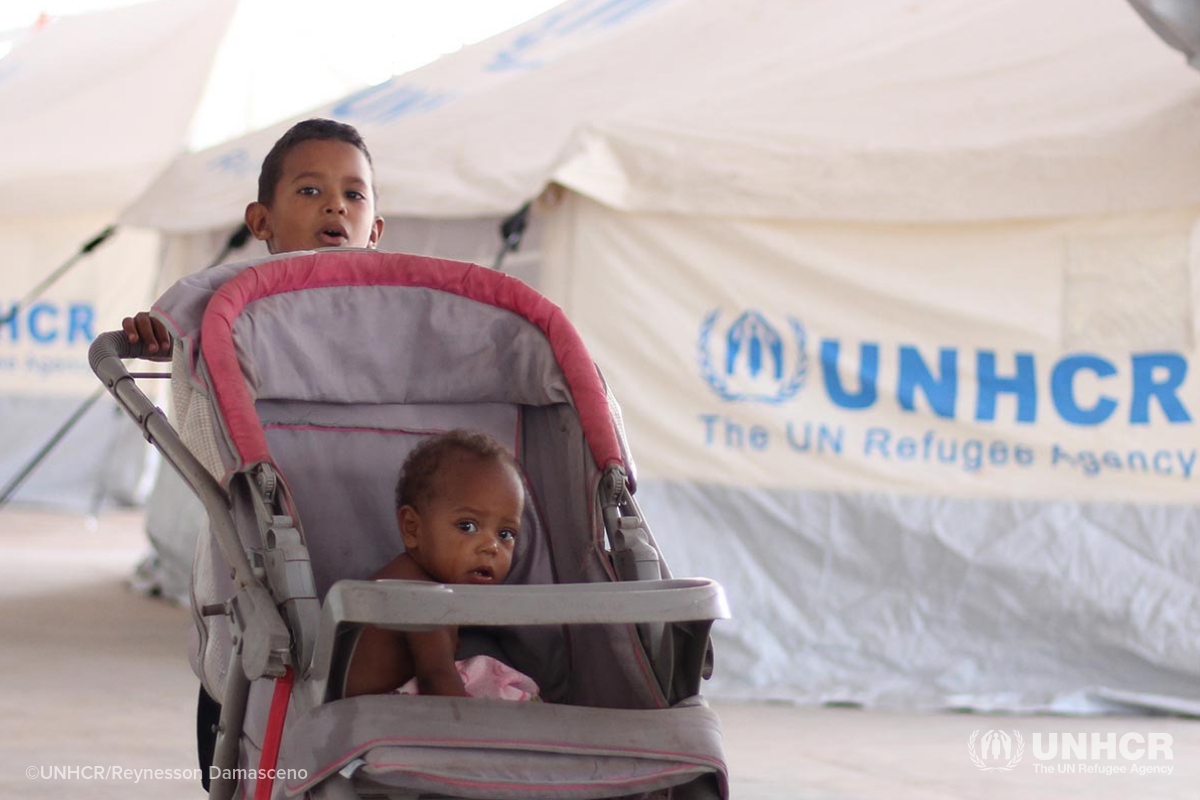
What still needs to be done?
UNHCR is working alongside host countries to scale up humanitarian assistance and long-term solutions for Venezuelan refugees and migrants. Local integration, employment opportunities and access to education will continue to be challenges for displaced Venezuelans. You can help people fleeing conflict today by becoming USA for UNHCR’s newest monthly donor.
